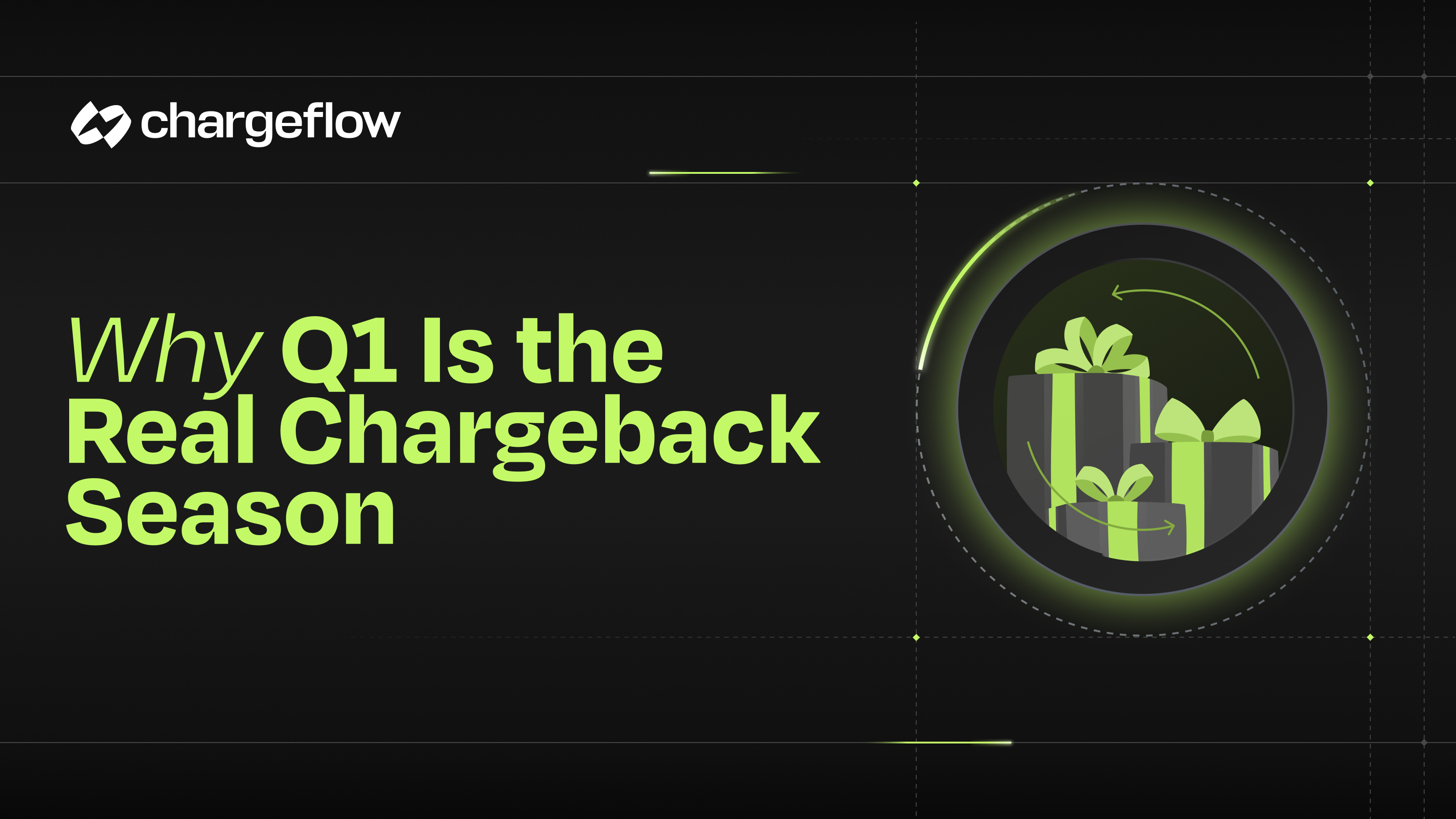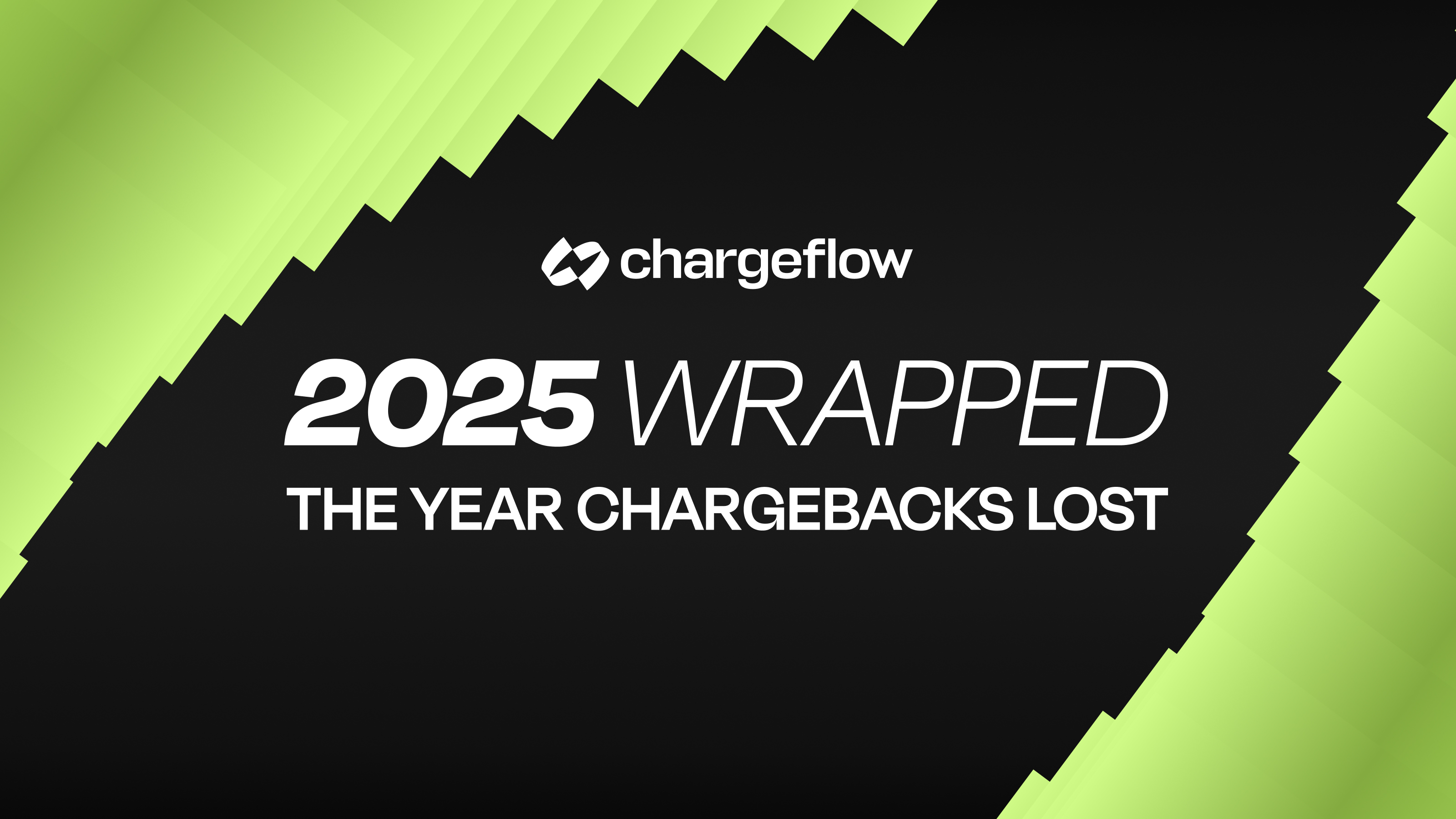Merchant Acquirer vs Payment Processor: Key Differences You Must Know

Chargebacks?
No longer your problem.
Recover 4x more chargebacks and prevent up to 90% of incoming ones, powered by AI and a global network of 15,000 merchants.
Are you confused about the differences between merchant acquirers and payment processors? Don't worry, we've got you covered!
Payment processing is an essential part of any business that wishes to accept electronic payments. As a business owner, you need to understand the difference between a merchant acquirer and a payment processor to make informed decisions.
In this article, we will explore the key differences between merchant acquirers and payment processors, so you can choose the right provider for your business.
Merchant acquirers and payment processors are two different entities that play a critical role in the payment processing ecosystem. Both of these entities work together to enable businesses to accept credit and debit card payments. Understanding the differences between the two is essential as it can impact your bottom line.
The purpose of this article is to provide you with a comprehensive understanding of merchant acquirers and payment processors. We will discuss the roles each entity plays in the payment processing value chain, its pricing structures, regulatory requirements, transaction processing, and merchant relationships.
By the end of this article, you will have a better understanding of the pros and cons of working with a merchant acquirer or payment processor, and how to choose the right provider for your business needs.
So, let's dive into the differences between merchant acquirers and payment processors and help you make informed decisions for your business.
What is a Merchant Acquirer?
A merchant acquirer is a financial institution or a company that helps merchants accept payments from their customers. In other words, they act as a middleman between the merchant and the bank that issues the customer's credit or debit card.
Merchant acquirers play a crucial role in the payment processing industry. They provide the technology and infrastructure that enables merchants to accept electronic payments. This includes credit and debit card transactions, online payments, mobile payments, and more.
Merchant acquirers work with merchants of all sizes, from small businesses to large enterprises. They offer a range of services, including payment processing, settlement, reporting, and customer support. They also provide hardware and software solutions that enable merchants to accept payments in-store, online, or on the go.
Merchant acquirers earn revenue by charging merchants a fee for their services. This fee is typically a percentage of the transaction amount or a flat fee per transaction. The fee covers the costs of processing the transaction, including the interchange fee paid to the bank that issued the customer's card.
Merchant acquiring is a highly competitive industry, with many players vying for merchants' business. Some of the largest merchant acquirers in the world include Chase Paymentech, First Data, and Worldpay.
What is a Payment Processor?
Payment processors play a vital role in the payment processing industry. A payment processor is a company that helps merchants to process electronic transactions, such as credit card payments, debit card payments, and e-checks. Payment processors act as a middleman between the merchant and the acquiring bank, which is the bank that processes the payment.
In simple terms, a payment processor handles the technical details of the payment process. They securely transmit payment information between the merchant, the acquiring bank, and the issuing bank. Payment processors also verify the payment details, ensure the availability of funds, and complete the transaction.
There are several key players in the payment processing industry, including Visa, Mastercard, American Express, and Discover. These companies act as payment networks that facilitate the transmission of payment information between the merchant and the issuing bank. Payment processors work with these payment networks to process transactions.
One of the primary functions of payment processors is to ensure the security of payment transactions. Payment processors use advanced encryption technologies and other security measures to protect sensitive payment information. They also comply with industry standards and regulations to ensure the security and integrity of payment transactions.
Payment processors charge fees for their services, typically based on a percentage of the transaction amount. The fees can vary depending on the payment processor and the type of transaction being processed. Payment processors may also charge additional fees for other services, such as chargeback protection and fraud prevention.
Differences between Merchant Acquirers and Payment Processors
Merchant acquirers and payment processors play crucial roles in the payment processing industry. However, there are several key differences between these two entities that you must know before choosing which one to work with.
1. Role in the Payment Processing Value Chain
Merchant acquirers are responsible for establishing relationships with merchants, onboarding them, and providing them with payment processing services. Payment processors, on the other hand, handle the actual processing of payments, including authorizing transactions, capturing funds, and settling transactions.
2. Regulatory Requirements
Both merchant acquirers and payment processors are subject to regulatory requirements. However, merchant acquirers are typically subject to more stringent requirements, as they are responsible for managing the risk associated with their merchants' activities.
3. Transaction Processing
Merchant acquirers typically provide their merchants with a range of payment acceptance options, including credit cards, debit cards, and alternative payment methods. Payment processors, however, are responsible for processing these transactions and ensuring that funds are settled to the appropriate parties.
4. Merchant Relationships
Merchant acquirers are responsible for establishing and maintaining relationships with their merchants. They provide support and guidance to their merchants, helping them to optimize their payment processing strategies and minimize their risks. Payment processors, on the other hand, typically have less direct contact with merchants.
5. Fees and Pricing Structures
Merchant acquirers and payment processors both charge fees for their services. However, their pricing structures can vary significantly. Merchant acquirers typically charge a combination of transaction fees, interchange fees, and other fees, while payment processors may charge a flat transaction fee or a percentage of the transaction value.
6. Chargebacks and Disputes
Merchant acquirers are responsible for managing chargebacks and disputes on behalf of their merchants. They work with payment processors and card networks to investigate and resolve these issues. Payment processors, however, are not typically involved in the chargeback and dispute resolution process.
Merchant Acquirers and Payment Processors: Pros and Cons
When it comes to payment processing, businesses have two main options: working with a merchant acquirer or a payment processor. Both have their unique advantages and disadvantages and choosing the right one can make a big difference in the success of your business.
In this section, we will explore the pros and cons of working with a merchant acquirer and a payment processor.
Pros of Working with a Merchant Acquirer
1. Relationship Building: Merchant acquirers work directly with businesses to establish and maintain merchant accounts. This creates a more personalized relationship between the acquirer and the merchant, which can be beneficial for long-term business growth and customer satisfaction.
2. Cost-Effective: Merchant acquirers typically charge lower fees and offer more flexible pricing structures than payment processors. This can be especially beneficial for small businesses or those with lower transaction volumes.
3. Enhanced Security: Merchant acquirers often provide additional security measures such as fraud prevention and chargeback management to help protect businesses from financial loss.
Cons of Working with a Merchant Acquirer
1. Limited Payment Options: Merchant acquirers typically only offer a limited number of payment options, which may not be suitable for all businesses.
2. Longer Processing Time: Because merchant acquirers work directly with businesses, the processing time for transactions may be longer than with a payment processor.
3. High Initial Investment: Setting up a merchant account with an acquirer can be more expensive initially due to equipment and setup costs.
Pros of Working with a Payment Processor
1. Broad Payment Options: Payment processors offer a wide variety of payment options, including credit and debit cards, e-wallets, and digital currencies. This can be beneficial for businesses with diverse customer bases.
2. Faster Processing Time: Payment processors typically offer faster transaction processing times than merchant acquirers, which can be important for businesses with high transaction volumes.
3. Easy Integration: Payment processors often offer easy integration with existing payment systems, making it easier for businesses to adopt new payment options.
Cons of Working with a Payment Processor
1. Higher Fees: Payment processors often charge higher fees than merchant acquirers, which can eat into profit margins, especially for smaller businesses.
2. Limited Customer Service: Because payment processors work with a large number of merchants, customer service can be less personalized and less responsive than with a merchant acquirer.
3. Security Risks: Payment processors may have a higher risk of security breaches due to the large number of merchants they work with.
How to Choose a Merchant Acquirer or Payment Processor?
Choosing the right merchant acquirer or payment processor for your business is crucial for ensuring smooth and secure payment processing. With so many options available in the market, it can be overwhelming to choose the right one. Here are some factors to consider when choosing a merchant acquirer or payment processor.
Payment Processing Needs
Before you start your search for a merchant acquirer or payment processor, it's important to understand your payment processing needs. Consider factors such as the types of payment methods you want to accept, transaction volume, and the geographic locations of your customers.
Different providers may specialize in different payment methods or have different requirements for processing volume, so understanding your needs will help you narrow down your options.
Fees and Pricing
Fees and pricing structures can vary widely between different merchant acquirers and payment processors. Consider factors such as transaction fees, monthly fees, chargeback fees, and any other fees that may be associated with processing payments. It's important to look beyond the advertised rates and understand all the fees that may apply to your business.
Security and Fraud Prevention
Security and fraud prevention should be a top priority when choosing a merchant acquirer or payment processor. Look for providers that offer robust security measures, such as encryption and tokenization, to protect sensitive customer data.
Fraud prevention measures, such as address verification, card security codes, and 3D Secure, can also help protect your business from fraudulent transactions.
Integration and Compatibility
The merchant acquirer or payment processor you choose should be compatible with your existing technology and systems. Look for providers that offer easy integration with your website or point-of-sale system, and ensure that they are compatible with the payment methods you want to accept.
Some providers may also offer additional features, such as invoicing or recurring payments, which can be beneficial for certain businesses.
Customer Support
Customer support is another important factor to consider when choosing a merchant acquirer or payment processor. Look for providers that offer 24/7 support, and ensure that they are responsive and helpful when you need assistance. Consider reading reviews or reaching out to other businesses in your industry to get a sense of the quality of support offered by different providers.
Reputation and Trustworthiness
Finally, consider the reputation and trustworthiness of the merchant acquirer or payment processor you are considering. Look for providers that have a proven track record of reliability and security, and consider reading reviews or speaking with other businesses to get a sense of their experience with different providers.
By considering these factors and doing your research, you can choose the right merchant acquirer or payment processor for your business. Remember that the right provider can make a big difference in the success of your payment processing, so take the time to make the right choice.
Final Thoughts
In conclusion, understanding the key differences between merchant acquirers and payment processors is essential for any business that wants to accept electronic payments. While they both play critical roles in the payment processing value chain, they have distinct differences in terms of their roles, regulatory requirements, transaction processing, merchant relationships, fees, and chargeback management.
Merchant acquirers are responsible for establishing and maintaining relationships with merchants, managing risk, and settling transactions. Payment processors, on the other hand, are responsible for securely processing transactions and transmitting data between merchants and acquiring banks.
When choosing between a merchant acquirer and a payment processor, it is important to weigh the pros and cons of each, consider the specific needs of your business, and compare the offerings of different providers. Factors such as pricing, ease of integration, customer support, and fraud prevention should all be taken into account.
Ultimately, the right choice will depend on the unique needs of your business. By doing your research and carefully evaluating your options, you can find a provider that offers the right mix of features, functionality, and support to help your business thrive in the competitive world of electronic payments.

Chargebacks?
No longer your problem.
Recover 4x more chargebacks and prevent up to 90% of incoming ones, powered by AI and a global network of 15,000 merchants.
















































.png)








